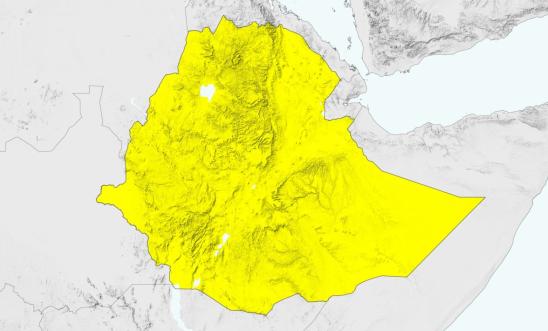
Press releases
Ethiopia: Authorities must give investigators and journalists access to Amhara region under state of emergency

Reports of human rights violations following ongoing armed confrontations between the Ethiopian National Defense Force and the local armed Fano militia
Allegations of mass killings and casualties in Finote Selam
State of emergency allows closure or restriction of media outlets suspected of “acting contrary to the purpose of this proclamation”
‘The sweeping state of emergency gives the Ethiopian government unchecked powers’ - Tigere Chagutah
The Ethiopian government must immediately grant independent investigators and media access to the Amhara region as reports of gross human rights violations emerge following ongoing armed confrontations between the Ethiopian National Defense Force and the local armed Fano militia, Amnesty International said today.
Several media outlets reported that an airstrike on the region this week led to numerous civilian deaths. Amnesty has also received allegations of mass killings and casualties in Finote Selam, Bahir Dar and Shewa Robit which merit further investigation.
Tigere Chagutah, Amnesty International’s Regional Director for East and Southern Africa, said:
"Following allegations of ongoing human rights violations in the Amhara region, the Ethiopian government must provide unhindered access to the Independent Commission of Human Rights Experts on Ethiopia and other independent investigative bodies, alongside independent media, to thoroughly examine these allegations. Now is not the time for international and regional actors to reduce scrutiny of Ethiopia.
"The sweeping state of emergency gives the Ethiopian government unchecked powers while internet blockages make it harder to monitor the situation in Amhara region.
“The Government and its security forces must respect and protect human rights of people.”
Nationwide state of emergency declared
On 4 August the Ethiopian government declared a nationwide six-month state of emergency following increased violence in the Amhara region. The state of emergency, approved by Ethiopia’s House of People’s Representatives on 14 August, gives the Government sweeping powers to arrest suspects without a court warrant, impose curfews, prevent freedom of movement, and ban public assemblies or associations.
The declaration also allows the closure or restriction of media outlets or other entities suspected of “acting contrary to the purpose of this proclamation” – terms which are ill-defined, can be interpreted broadly, and are not subject to judicial oversight.
The federal government also announced that it has detained individuals in Addis Ababa in informal detention centres, including schools. Lawyers and family members of people detained in Addis Ababa told Amnesty that detainees were being denied the right to access to court and legal counsel.
The Government has blocked internet access in the Amhara region since 3 August, infringing on the public’s right to freedom of expression and access to information.
In Ethiopia, previous states of emergency proclamations have led to mass arrests, prolonged detention without charge or trial, and unlawful restrictions on communication.